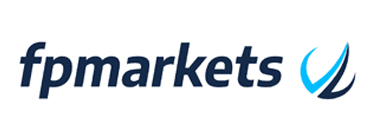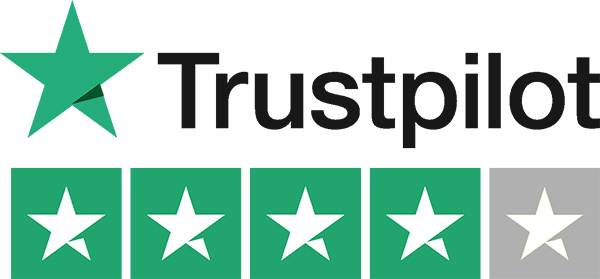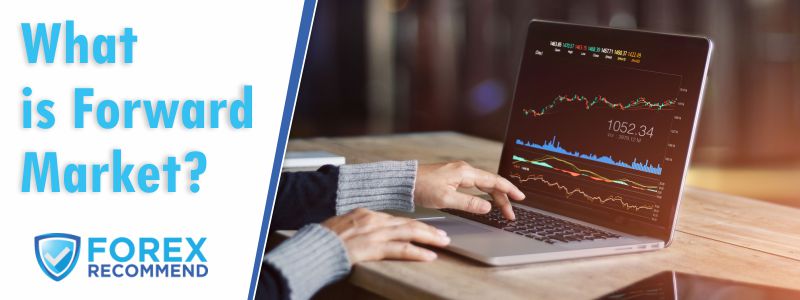
The forward market is a marketplace that is over-the-counter (OTC) and sets the price of a financial instrument or an asset for future delivery.
Forward markets are typically used by retail and institutional traders in trading a wide range of financial instruments. However, the term “forward market” is used when referring to the forex exchange market, or forex market.
It can also be used in markets where securities, interest rates, and commodities are traded. Forward trading is typically used as a form of hedging, especially where unexpected, unwanted price fluctuations may occur.
Top 10 Forex Brokers
Broker
Rating
Regulators
Min Deposit
Leverage
Website
Top 10 Forex Brokers
Broker
Rating
Min Deposit
Leverage
How Forward Markets Work
In the forward market, forward contracts are created. Similar to futures contracts, forward contracts can be used for both speculations as well as hedging. However, there are notable differences in the forward contracts used for each.
Forward contracts have the distinct feature that they can be customized to fit the requirements of a trader, whereas future contracts have standardized features where contract size and maturity is concerned.
Forwards are typically processed between banks or between a bank and a trader. Futures, on the other hand, are done on an exchange, which is subsequently the party to the transaction.
Forwards are known for their flexibility, which makes them very attractive to retail investors in the foreign exchange market.
It is also important to note that the pricing in the forward market is interest rate-based. In forex, the forward price originates from the interest rate between two currencies.
This is then applied over the period from the date of the transaction until when the contract is settled. Where interest rate forwards is concerned, prices will depend on the yield curve until maturity.
Advantages of forwarding Markets
- Forward contracts are tailor-made and can be written for any given amount and/or term.
- Forward contracts are very flexible as they are not traded on an exchange and therefore not standardized.
- The terms of the forward contract are at the discretion of the counterparties in the contract or transaction.
- There is price protection when using forward contracts as the price is fixed for the predetermined future date.
- Forwards are OTC products.
- There are no margins paid, and traders are not subjected to an up-front premium.
Disadvantages of forwarding Markets
- Forward markets require that capital be tied up for the duration of the contract until settlement. There are no intermediate cash flows before this time.
- Forward contracts are subjected to default risk. This means that there is a high risk of dishonoring the contract from either party as there is no third-party guarantying the contract.
- Forward contracts can be difficult to cancel
What is a Forward Contract?
A forward contract allows for a party to purchase or sell a specific asset at a certain price within a certain time which is set in the future. Forward contracts are flexible, and they allow for a significant amount of customizability with regards to the asset, delivery date, and the size of the order.
Commodities that can be traded on a forward contract include:
- Natural Gas
- Oil
- Precious metals
- Grains and several others.
Depending on the contract, the forward settlement can either be done through a recurring monthly cash payment or a once-off payment when the goods have been delivered.
What are the Types of Forwarding Contracts?
- Closed Outright Forward
An outright forward, or a currency forward, can simply be defined as a currency contract that locks both the exchange rate and the delivery date beyond the spot value date.
This is the simplest type of forex forward contract, and it provides the investor, importer, or exporter with protection from fluctuations in the exchange rate.
The benefit of an outright forward contract is that it defines the terms, rate, and delivery date of either the exchange of one currency for another.
When companies buy, sell, or borrow from foreign businesses, they can use an outright forward contract to mitigate exchange rate risk.
When entering an outright forward contract, it represents a firm commitment that delivery of the purchased currency will happen once it is sold. Counterparties must provide one another with instructions regarding the specific accounts where delivery of the currencies will occur.
An outright forward can be closed by entering a new contract to do the opposite, resulting in either a gain or loss compared to the original deal, depending on the market movements.
If close-out is done with the same counterparty as the initial contract, currency amounts are typically netted under an International Swap Dealers Association agreement, subsequently reducing settlement risk as well as the money that must change hands.
2. Flexible Forward
A flexible forward is a type of forwarding contract that is also commonly referred to as an open forward contract. It is a contractual agreement that involves the purchase or sale of a specified amount of one currency against the payment in another, either on or before a certain future date or the “value date.”
Inflexible forward contracts, funds can either be exchanged at the same time, or there can be several payments made throughout the contract if the entire amount is settled by the maturity date.
3. Long-Dated Forward
This is a category of a forward contract that has a settlement date that is further than a year away, even as far as ten years. These contracts are typically used by companies who want to hedge against certain continuous risks such as currencies or interest rate exposures.
Long-dated forward contracts are inherently riskier than other financial instruments because of the risk of default from either one of the two parties involved.
In addition, long-dated forward contracts also have a larger bid-ask spread than contracts that are shorter-terms, making them more expensive than other contracts.
4. Non-Deliverable Forward
A Non-Deliverable Forward, or NDF, is a forward contract that is typically settled with cash and according to a much shorter term than some other forward contracts.
With an NDF, the notional amount is never exchanged, which is what is meant by “non-deliverable.” With these types of forwarding contracts, two parties agree to take opposite sides of a transaction for a predetermined amount of money.
This is done at a contracted date, such as in the case of a currency NDF. This means that the counterparties will settle the difference between the NDF price contracted as well as the prevailing spot price.
The profit or the loss is then calculated based on the notional amount of the agreement by considering the difference between the spot rate at the time that the contract is settled and the agreed-upon rate.
Are Forward Markets Good for Beginners?
No, forward markets are only suited for institutional investors as a result of the complexity and risks, and level of risk management involved. Apart from financial risk, investors are faced with currency risk, counterparty risk, risk of default, and several others.
To avoid significant financial risk, beginners are urged to start trading in the spot market instead. The spot market is inherently known for being beginner-friendly, and spot market prices may fluctuate rapidly, but the market allows for beginners to trade on accounts that use cents, limiting the financial risk that traders can be exposed to.
What is the Difference between Spot Markets and Forward Markets?
- Price
- Execution
- Exchange rates and hedging
The spot forex exchange rate where forex is concerned is executed either instantly or within two days, whereas a forward contract involves forex that is bought/sold at a determined price for settlement at a future date or a set of future dates.
Where the spot market is concerned, the spot rate typically refers to the price that the buyer can expect to pay for forex with another currency. Where a forward contract is concerned, contracts are locked in a currency rate in anticipation that it will increase in the future.
Spot market transactions are used for immediate requirements and payments, allowing traders to purchase a spot contract to lock the exchange rate on a currency pair in place in the future or for a modest fee, whereas traders can purchase forward contracts to lock in a future rate.
What is the Difference between the Forward Market and Futures Market?
The forward market and futures market differ in the following ways:
- Classification
- Price Range
- Maturity
- Contract size
- Regulation
- Settlement
- Location
- Credit risk
- Speculation
- Collateral
- Commission
- Trading
The forward market has the classification as a commodity forward or a financial forward, whereas the futures market is classified as commodity future and financial future.
In terms of the price range, the future market specifies a maximum daily price range daily, meaning that participants in the futures market are not exposed to more than a certain amount of daily price fluctuation. The forwards market, on the other hand, does not have daily limits where price fluctuations are concerned.
In terms of maturity, CME futures contracts are available for delivery on one of four different maturity dates per year. However, banks offer forward contracts that are deliverable on any given date.
In terms of contract size, the futures market offers standardized contracts that have predetermined amounts, whereas the forwards market offers contracts that have specified amounts of currencies that cater to specified needs.
In terms of regulation, the futures market is regulated by the Commodity Futures Commission, whereas the forwards market is self-regulated.
Where settlement is concerned, there are less than 2% of futures contracts that are settled through actual delivery. However, more than 90% of forwarding contracts are settled through delivery.
In terms of location, trading in futures can occur on a centralized exchange, while trading in forwarding contracts can be done by negotiations between banks and their clients.
In terms of credit risk, currencies can be delivered on schedule by the Clearing House of Future market if either party defaults. However, a bank that deals in the forward market must satisfy itself that the party with whom there is a contract is creditworthy, leaving a lot of room for error with counterparty risk.
Where speculation is concerned, future market brokers allow for speculative transactions, but banks typically discourage speculation by individuals where forward contracts are concerned.
In terms of collateral, a security deposit, or a margin, is mandatory for each futures contract whereas, with forward contracts, there is no margin payment required, but there are compensating balances required in most forward contracts.
Where commission is concerned, the commission of intermediaries in the futures market will depend on published brokerage fees as well as negotiated rates that are placed on block trades.
Where the forward market is concerned, there is a “spread” between the buy and sell prices of the bank that subsequently sets intermediaries' commissions.
In terms of trading, futures contracts are traded in a more competitive field and financial market with millions of participants from retail traders to institutional traders and investors, whereas forward contracts are traded either by telex or telephone.
Table of Contents


